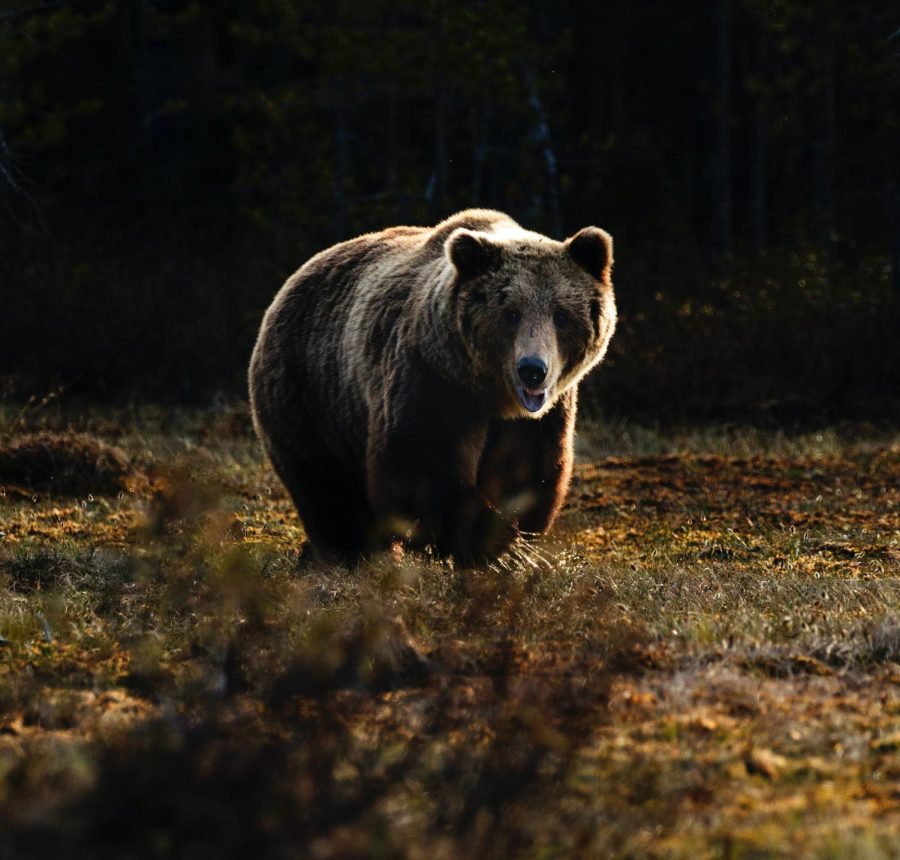Would you let a wild animal in your home?
February 24, 2022
It was a cold night in north Pennsylvania, Kelly Ann Waltz was home with both her kids and the neighbors. Kelly and Michael Waltz had been exotic pet owners for almost twenty-five years and had just acquired the newest member of the family, a brown bear named Teddy. Teddy had no reported history of being violent or aggressive towards the Waltz family.
When Kelly entered Teddy’s cage to clean it, the bear turned around, attacked, and mauled Kelly to death. The neighbor’s kids immediately called for their dad, Scott Castone. Castone rushed over with his shotgun and shot and killed Teddy. Castone later expressed himself saying, “These things are not tame animals; they’re wild animals.”
Kelly’s story is just one of many examples of exotic pets killing or harming owners, promoting critics to argue that exotic pet ownership should be outlawed. However, supporters counter that exotic pet owners know the risk that comes with having these animals as well as the precautions they should take for their own safety as well as the safety of those around them.
Although all exotic pets are called exotic for a reason, some can be more dangerous than others. “The fact that their natural instincts are more acute than traditional pets makes them exotic,” sophomore Connor Squires said.
Pets such as cats and dogs are descendants of exotic animals that have become domestic house pets, and over time, have moved away from their ancestor’s predatory instincts.
Exotic pet owners face many dangers when it comes to owning a non-traditional pet, which can make non-exotic pet owners confused when it comes to taking the risk of owning one. When asked about, the risk of owning an exotic pet, Squires, like many, asked, “Why own an exotic pet?”
Owners have found ways to keep themselves safe. The most common form of these precautions is detaining the animal by using cages.“ I think cages are where exotic animals belong because of the history of their outlashes,” sophomore Michael Bresnahan said.
Although cages have their advantages, they can frustrate the animal as they limit the animals space to live, sometimes drastically, compared to the animal’s natural environment. This frustration may cause the animal to act out against their owners.” Keeping these exotic animals in minimal space can provoke aggression,” exotic pet owner Justin Matthews said in an interview with the newspaper My Sun Coast in 2015.
Pet owners must be attentive and caring but exotic pet owners take it to the next level for their own safety. If the owner is harsh and does not pay attention to their pet, then the pet may not grow close with the owner and it would be easier for the pet to have an out lash against its owner. “Unless the owner does something to provoke it” Bresnahan later said when asked about why he thinks an exotic pet may attack its owner.
[Exotic pets] “could be dangerous if they are unrightfully cared for, but for some, they are just calm,” sophomore Jacob Marin said.
Although Marin does have an Iguana, an exotic pet not known for attacking its owners, he still knows and believes his pet could become dangerous. “If they are said to be so dangerous, then just be careful,” Marin responds when asked about taking precautions against exotic pets.
Exotic pets can be both caring and cute companions, but they do come with many risks. Aspiring exotic pet owners should know these risks and how to combat them as well as their pet’s requirements in their everyday life before they choose to own one.

